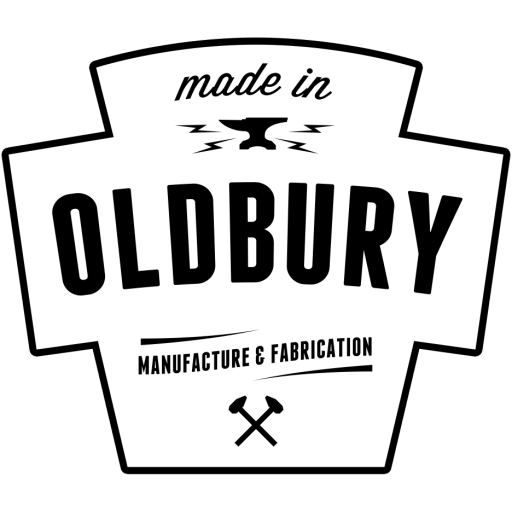British Industrial Plastics is the oldest polymer material manufacturer in the UK, still in operation today on Tat Bank Road.
The company was originally founded as British Cyanides in 1894 when two neighbouring companies both experimenting with the production of cyanide - Albright & Wilson and Oldbury Alkali Company - joined forces to build a factory on a piece of adjacent land. Their largest market was South Africa, where cyanide was used in the extraction of gold from low-grade ores. When the Boer War broke out in 1900, the market for cyanide (for use in the goldfields) crashed and left only two British suppliers left in business, one being this company. By 1913, the company was a small enterprise with just one factory making one product, converting sulphocyanide into sodium ferrocyanide. This was sold as yellow prussiates of soda (used as an anti-caking agent in salt) or red prussiate of potash (used in making blueprints).
The fortunes of the company were changed in the mid-1920s with the development of a process for the condensation of thiourea with formaldehyde. The production of this new resin was to be a major breakthrough in the development of plastics. By the early 30’s, thiourea-formaldehayde was replaced by urea-formaldehyde which could be worked at much lower temperatures.
Urea-formaldehyde was used in a great many manufacturing processes. Examples include decorative laminates, textiles, paper, foundry sand moulds, wrinkle resistant fabrics, cotton blends, rayon, corduroy. It was also used to glue wood together, commonly applied when producing casings for electrical appliances. During the Second World War the company produced ‘Beetle A Cement’, was a urea-formaldehyde glue for gap filling and holding together surfaces of wood which did need to be flush – it was used to hold together the famous Mosquito aeroplane. In the late 1940s, BIP commenced manufacture of its own range of Beetle polyester resins, acquiring the old Rood End Road potash factory for a new, dedicated resins factory (largely as it exists today). Applications included boat building, automotive body panels, the production of furniture and wood laminates, paint manufacture, paper treatment, textile finishing, building insulation, decorative building panels, even church steeples.
The Oldbury site also manufactured of melamine formaldehyde resins and moulding powder, resulting from the long-standing technical liaison between BIP and its original amino resin licensees in the USA. Speciality resins were developed for a range of industries with a variety of applications. New resins were developed to improve stain, crease and shrink resistance and to enhance drip-dry properties. Other resins were developed to give ‘wet strength’ to paper for kitchen towels, facial tissues and industrial filters, also for seed packets, maps, multi-wall paper sacks, emery paper and frozen food packaging. Coating resins were used in lacquer and paint manufacture, particularly cross-linked resins for stoving enamels.
By the end of the 1950s BIP was:
- the largest manufacturer of urea moulding powders in Europe
- the third largest UK manufacturer of polyester resins
- the second largest UK manufacturer of BMC (bulk moulding compound
- the largest UK manufacturer of amino textile and paper resins
- operating a number of overseas subsidiaries, with licensees in India, Japan, Spain, Italy, Australia and Yugoslavia
- the leading supplier of moulding powders in Mexico and leading supplier of urea resins in South Africa
- consolidating a 70% share of the UK market for compression presses and 90% share of hydraulic pelleters sold in the UK
- holding a 25% share of all UK-built injection moulding machines
- producing Filon, supplying 25% of all translucent roofing sheet (including PVC) sold in the UK
- commanding a leading position amongst Europe’s mould makers.
The company was taken over by the building industry giant Turner & Newall in 1961.
The Oldbury site was expanded in 1973, with the construction of a second formalin plant on the Oldbury site and equipment to manufacture nylon 6 in 1974. Nylon 6 is used in a broad range of products requiring materials of high strength, in the motor industry for gears, fittings, and bearings, used as thread in bristles for toothbrushes, surgical sutures, strings for acoustic and classical musical instruments, as well as in the manufacture of a large variety of threads, ropes, filaments, nets, and tire cord.
By 1995, however, much of BIP nationally was closed down or sold off; all that remained were the Oldbury factories, then occupying 87 hectares. With profits of only £3 million from an annual turnover of £87 million, the company was in need of investment. A management buy-out took place backed by venture capital. The company restructured and disposed of some production - first to go was polyester resins manufacture, followed by coating resins in 1999 and BMC (glass-fibre reinforced polyester bulk moulding compound) in 2001. In November 2004, BIP was acquired by Synthite Limited, the UK's leading manufacturer of formaldehyde.
Web link: http://www.bip.co.uk/index.html















